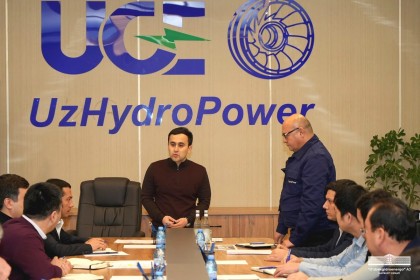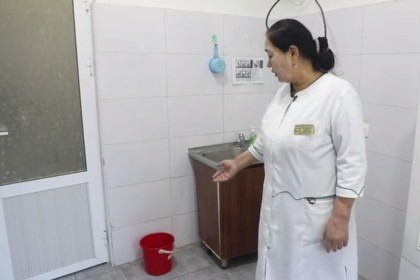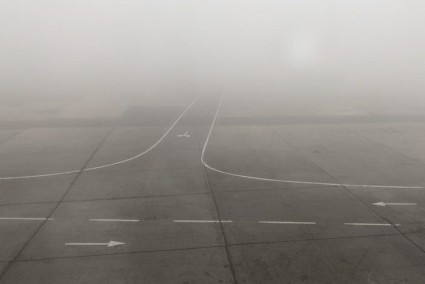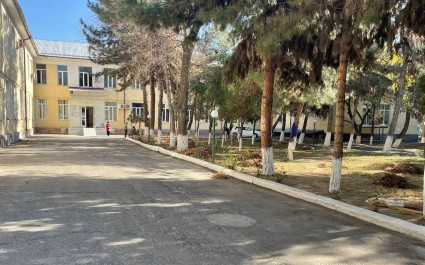MPS of the Legislative Chamber at a meeting on November 14 passed the bills on the ratification of the Treaty between Uzbekistan and Kyrgyzstan on certain sections of the Uzbek-Kyrgyz state border and the Agreement between the governments of the two countries on the joint management of water resources of Andijan (Kempir-Abad) reservoir. Both documents were signed in Bishkek on November 3.
Prime Minister Abdulla Aripov delivered a report on the bills. In his opening remarks, he underscored the "carefully thought-out and pragmatic foreign policy" under the leadership of the President of Uzbekistan, which serves to expand mutually beneficial cooperation with other countries and improve Uzbekistan’s image in the international arena.
According to him, this also made it possible to bring the ties with neighboring countries in Central Asia to a new stage. In particular, the signing of border agreements and the reopening of border checkpoints was a "big step" to ensure security and stability in the province, he said.
“Over the past five years, agreements have been agreed and signed on the delimitation of 1,170 km of the border with Kyrgyzstan, and 193 km with Tajikistan. The demarcation of the state border of 2356 km with Kazakhstan was carried out. The operation of 15 border checkpoints has been resumed: with Tajikistan - 10, Kyrgyzstan - 3, with Kazakhstan - 2. 18,000 citizens and over 1,000 trucks pass through the restored checkpoints on the border every day,” Abdulla Aripov said.
He also noted the adoption of separate presidential decrees on the development of border areas - the Sokh district of Fergana province (exclave) and Bobotog of Uzun district of Surkhandarya province, as well as several mahallas in the Bekabad city of Tashkent province and Tashkent city.
“Negotiations with neighboring countries on border issues are not easy. Proposals are being prepared after much debate and great effort, [studying sections of] the borders step by step, holding several meetings of intergovernmental commissions, studying archival documents. On the basis of the initiative of the esteemed President to strengthen mutual friendly ties with neighboring Kyrgyzstan, the process of agreeing on 35 previously unapproved sections - a total of 302 km - has been brought to the final stage. It took five years to reach this agreement,” he said.
Territory swap
Abdulla Aripov said that the Agreement between Uzbekistan and Kyrgyzstan on separate sections of the Uzbek-Kyrgyz state border was not achieved "easily".
He noted that the signed agreement found a solution "on a number of important issues of strategic importance for our country." Firstly, the Andijan reservoir on the territory of Kyrgyzstan is considered an important strategic object for the country's agriculture. Today, over 175,000 hectares of agricultural land in the provinces [Fergana Valley of Uzbekistan] and 25,000 hectares in Kyrgyzstan are irrigated from this reservoir. The capacity of the reservoir is 1 billion 578 million cubic meters, covering an area of вАЛвАЛ4957 hectares, the head of government said.
“Instead of the [received] territory of this reservoir, we propose to allocate 1,019 hectares of pasture land in Tashakhur site in Kurgantepa district of Andijan province. For information: earlier, during the Soviet Union, 4,127 hectares of land were allocated from the territory of the Uzbek SSR as compensation for the reservoir. An additional 19.5 hectares of land is being transferred from Kyrgyzstan to Uzbekistan for the maintenance and [protection] of the territory of the reservoir and the dam. In turn, in order to maintain friendly ties with neighbors, permission is given to the citizens of Kyrgyzstan to use the reservoir for some purposes,” the prime minister said.
The PM also clarified that the countries, as part of the coordination of the mechanism for the operation of the reservoir, agreed to lower the “lens” (water level) of the reservoir from 906 to 900 meters, although Kyrgyzstan asked for more.
Answering a question from deputy Doniyor Ganiev, the prime minister said that during the construction of the reservoir during the former Soviet Union, Uzbekistan undertook to build a canal with a length of more than 200 km from the left bank of the reservoir. According to him, the construction of a canal and additional hydraulic structures from the reservoir to the Batken province of Kyrgyzstan will require large funds from the budget of Uzbekistan.
In addition, residents of more than 20 settlements in the Andijan and Ferghana provinces will have to be relocated, since the canal will pass through the territory of Uzbekistan, and this will lead to the loss of more than 2,000 hectares of the country's agricultural land, he explained.
“For various reasons, this channel was not built. The Kyrgyz side noted that due to the failure to fulfill this obligation, Kyrgyzstan was unable to develop over 8,000 hectares of land for many years, and this had a negative impact on the country's economy. In order to compensate for undeveloped land due to the unfinished canal, it is proposed to transfer to Kyrgyzstan the initially disputed 12,709 hectares of pasture land from the Gavasay site in the Papsky and Chust districts of Namangan province,” he said.
Abdulla Aripov said deputies in Namangan Oblast are aware that 6,000 hectares of the proposed Gavasay site is a disputed site and is actually being used by citizens of Kyrgyzstan.
“If we make calculations, we offer 12.7 thousand hectares of pasture land instead of 8,000 hectares of undeveloped agricultural land. It is worth noting that at present, in the discussions on the border, it is recommended to give 2.5 times more pasture land for 1 hectare of agricultural land. In the proposed bill, instead of 19.5 thousand hectares, the Kyrgyz side will be allocated 13,719 hectares of pasture land as compensation (previously 4,127 hectares were already provided),” the prime minister said.
The head of government noted that today the Kasansay reservoir with a capacity of 165 million cubic meters is used to irrigate over 27,000 hectares of agricultural land in the Kasansay and Chust districts of the Namangan province.
“Taking into account the fact that this reservoir, located on 850 hectares of the territory of Kyrgyzstan, is fully used for the needs of our republic, it is proposed to transfer land plots of 477 hectares from Chust, Kasansay and Yangikurgan districts of Namangan province to Kyrgyzstan. A land plot from the Chust district of 105 hectares is considered a disputed territory where citizens of Kyrgyzstan live on the Karakurgan massif,” he said.
Uzbekistan also agreed to receive 429 hectares of land from Kyrgyzstan on 10 disputed plots and give 294 hectares of land from the territories of the provinces of the Ferghana Valley.
The countries also agreed to sign a separate government agreement on the joint use and cleaning of the Chashma spring in the Sokh district of the Ferghana province, which caused a border conflict between the residents of Uzbekistan and Kyrgyzstan in late spring 2020, Abdulla Aripov said.
The Prime Minister noted that the signing of the agreement would allow to completely end the disputes over the border with Kyrgyzstan, ensure the inviolability of the borders of Uzbekistan and prevent bloody conflicts in the border areas.
The document will also facilitate uninterrupted water supply to about 8,000 farms in Uzbekistan to grow 2.5 million tons of agricultural products per year, export products worth 500 million US dollars.
Following the discussions by deputies in the first reading, the bill on ratification of the Treaty between Uzbekistan and Kyrgyzstan on certain sections of the Uzbek-Kyrgyz state border was approved by 119 deputies, 6 opposed, 3 abstained and 4 did not vote.














